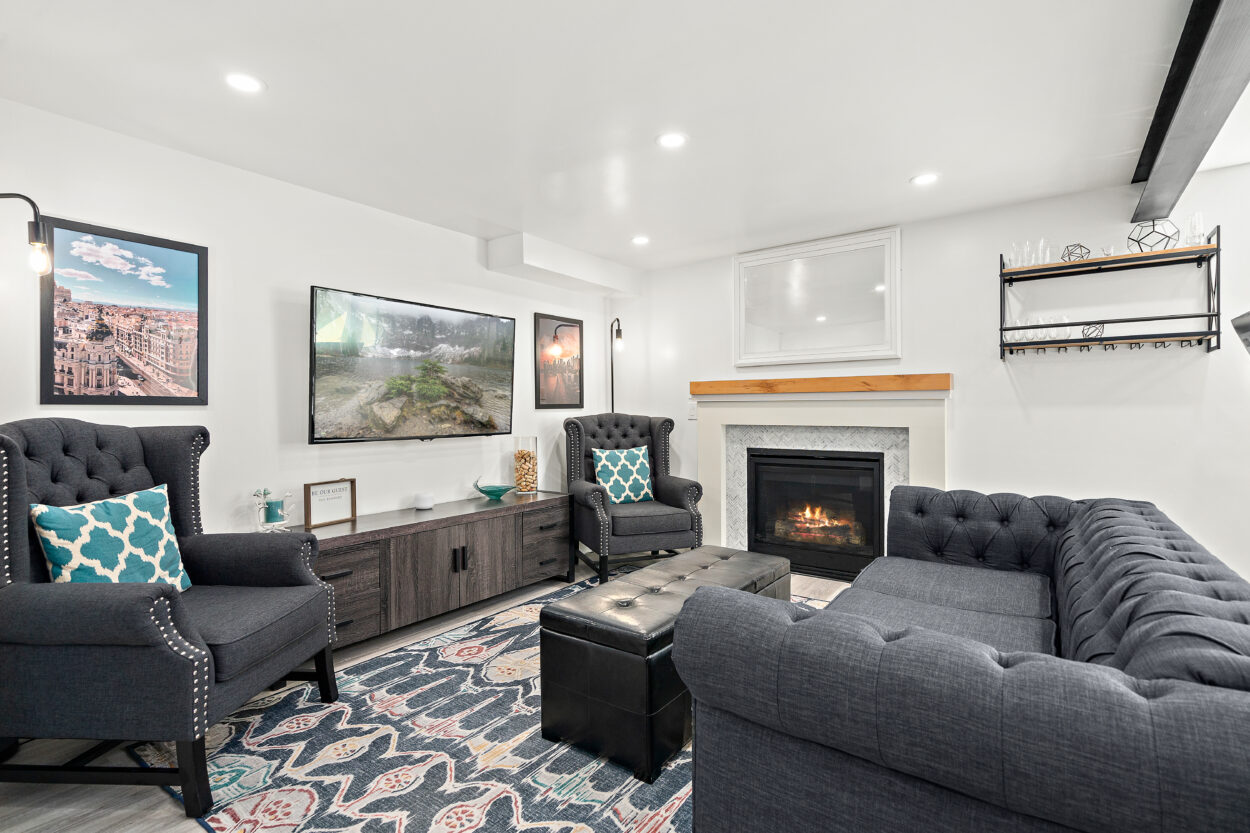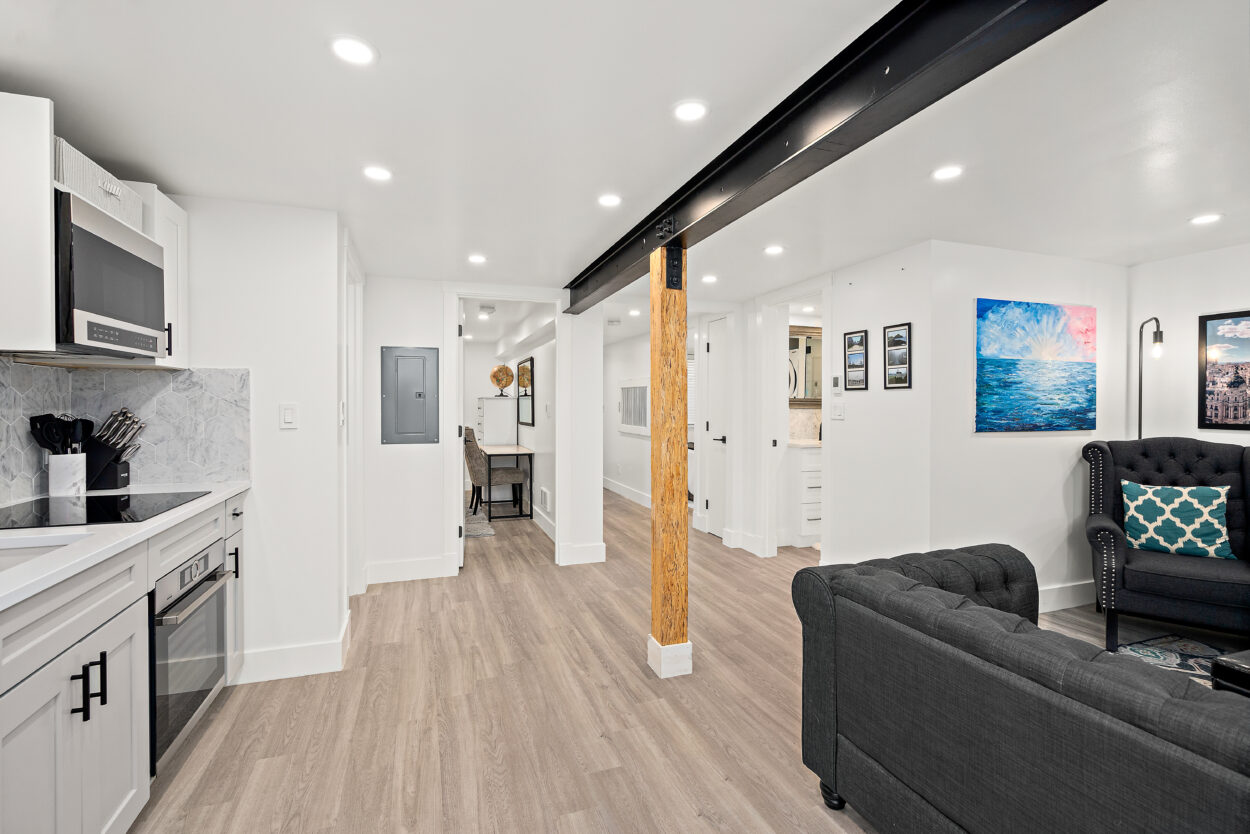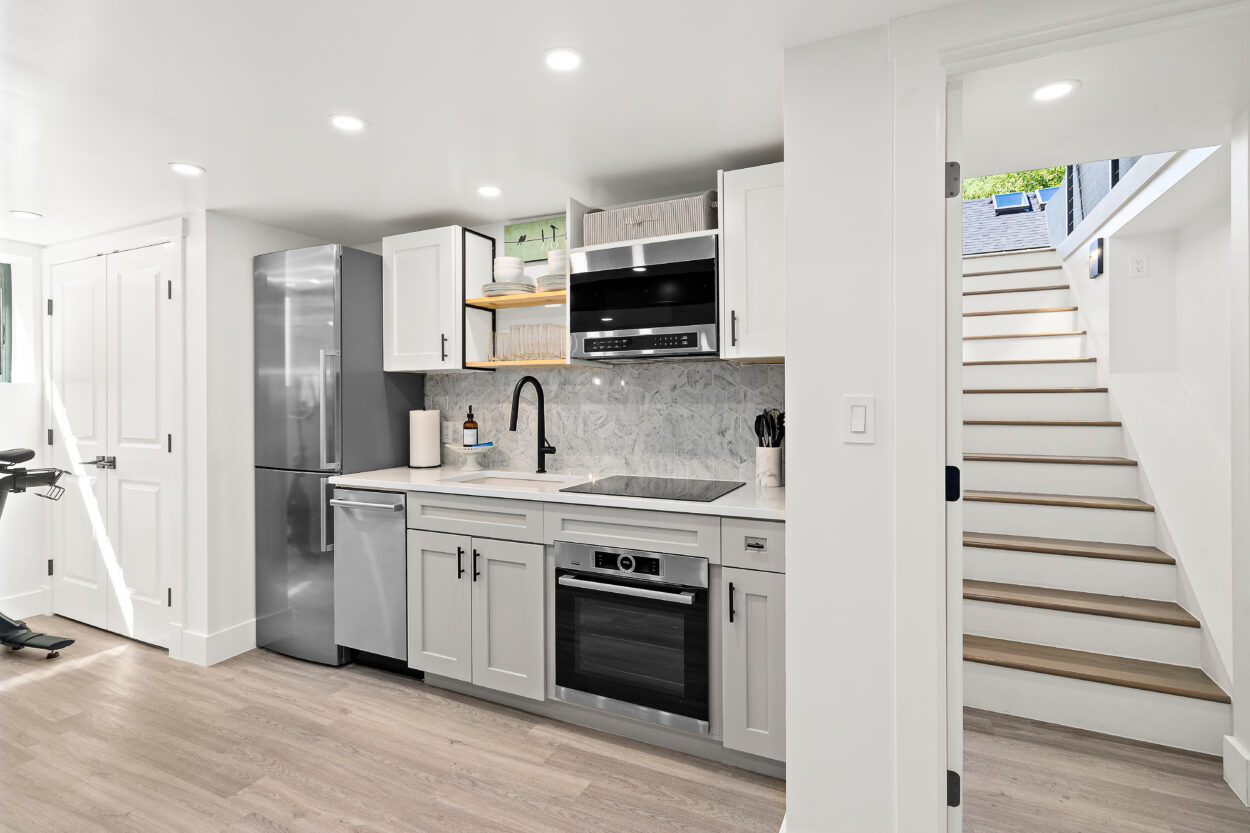Basement Remodel or Basement ADU: Unlocking Your Basement’s Full Potential
June 17, 2023
In a city like Seattle where square footage is hard to come by, homeowners are often wondering how to take advantage of every inch of their property. One common underutilized space is the basement.
When considering a basement remodel, the possibilities are almost limitless! You could transform the space into an entertainment room, wine cellar, fitness studio, home office, or a full guest or rental suite. Whichever direction you go, you have the ability to unlock the full potential of your basement and enjoy the benefits for years to come.
In this article, we’ll explore the difference between a simple basement remodel and a basement ADU remodel, the building process for each, and how they can impact your household and your finances.
What is an ADU?
An accessory dwelling unit, or ADU, is a completed living space that shares a structure with your existing home. You may have heard ADUs referred to as in-law suites or mother-in-law suites. It’s important to note that an ADU is different from a DADU, which is a detached accessory dwelling unit like a backyard cottage or carriage house.
One of the primary benefits to building an ADU is the versatility. Many homeowners create ADUs to provide a safe and independent living space for family members, especially in multigenerational homes. A basement ADU can also provide an incredibly comfortable area for house guests.
Other homeowners build ADUs to make money. They can be listed on short-term rental websites like Airbnb or used for long-term rentals. In a growing city with a high demand for housing, long-term renting can be a great opportunity for people looking to offset their mortgage or generate additional income.

The Difference Between a Simple Basement Remodel and an ADU
While both projects allow you to capture underutilized space, they have different purposes. A simple basement remodel prioritizes meeting the needs of your immediate household, allowing you more design freedom to cater to your family’s specific requirements.
Perhaps one or more members of your household is working from home and would like an office, maybe you want to upgrade from a cramped laundry closet to a spacious laundry room, or you’d like to ditch the gym membership in place of a more convenient and private fitness studio.
An unfinished basement simple remodeling project could be the perfect way for you to improve your home to align with your family’s lifestyle.
On the other hand, ADUs are designed to generate income, attract renters, or accommodate multigenerational living. To achieve this, ADUs require specific features such as a separate entrance, a kitchen or kitchenette, an emergency exit (egress) window, a full bathroom, a laundry space, and comfortable living area. Although some of these features can also be incorporated into a simple basement remodel, the primary focus of an ADU is to provide all the features someone would need for long or short term independent living.
If you’re planning on building an ADU, be sure to also consider how the ADU connects to the main floor of your home. Depending on how the space is going to be used, it may be smart to include an access point that can be completely closed off and locked by renters.
Building Permits for Basement Remodels and ADUs
Another important aspect to consider is the permits and inspections required for each option. Building an ADU in Seattle requires you to follow city and county protocols, obtain permits, and pass inspections to ensure safety, structural integrity, and code compliance. ADUs are subject to zoning regulations, including lot size requirements and height restrictions. The property must be zoned to allow for ADU construction, and there may even be limitations on the number of ADUs permitted on a single lot.

Consider using resources like the Seattle Department of Construction and Inspections website for information about zoning codes, land use regulations, and permitting requirements. They even offer an interactive zoning map to help you learn more about requirements and restrictions for your property.
Expenses and Financial Return of Finished Basements and ADUs
Constructing an ADU will likely take longer and cost more compared to a simple basement remodel. For example, converting your basement into an ADU may require structural modifications and reinforcements to meet safety and building code requirements. This can include foundation work, structural upgrades, ventilation improvements, and separate utility hookups.
Heating and cooling options should also be taken into account. A basement ADU, being a primary living space, requires a comfortable temperature throughout the year. This may entail installing a separate HVAC system. In contrast, a simple remodel can often be heated or cooled by the existing system, resulting in lower costs and less work.
Regardless of how you choose to finish your basement, one crucial aspect that should not be overlooked is waterproofing. Properly waterproofing your basement is essential to preventing flooding and mold growth, which can damage items stored in the space. If you opt for a basement ADU, waterproofing becomes even more critical to ensure the safety and satisfaction of your tenants, who will be storing their belongings in the area.

The specific amenity requirements for ADUs, such as a kitchen and bathroom, increase the complexity of the construction process and would likely require additional materials, labor, and expertise, which can all contribute to higher costs and a longer construction schedule.
Regardless of whether you choose a simple remodel or an ADU, finishing your basement is a worthwhile investment. Seattle’s high demand for real estate means that your basement space offers significant potential to increase your home’s value. A finished basement space expands your home’s square footage, while an ADU provides the added advantage of potential rental income.
If you’re ready to transform your basement, whether through a simple remodel or an ADU, we’re here to assist you. Contact us today to schedule a free consultation, and our team at Harjo Construction will be delighted to help you create the perfect space in your Seattle home.